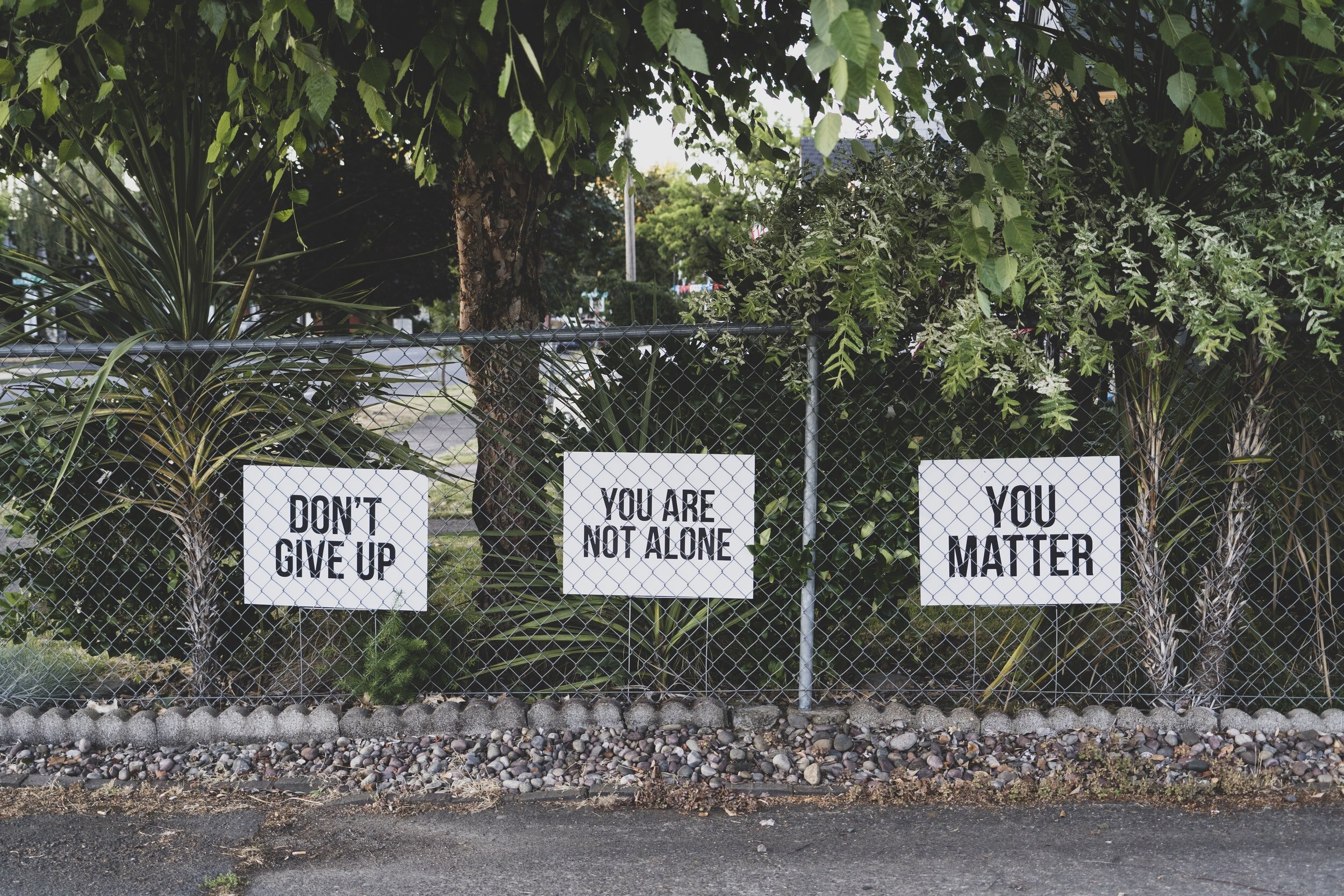Emotional Abuse: What is it and what can we do?
Emotional abuse is a way for a person to exert control over another; it often co-occurs with other forms of abuse, and can precede physical/sexual abuse (though not always). An emotionally abusive person will criticize, shame, blame and manipulate. This type of abuse is a person’s attempt to frighten, control or isolate you.
Coercive control was actually made illegal in 2015 (Section 76 of the Serious Crimes Act), but there is still a lack of understanding around this issue. This means that people (either the victim/survivor or their family and friends) sometimes don’t recognise it straight away, or they may only start to understand it once it already feels too dangerous to try to leave.
Also, because of the nature of its development, it’s often hard to see it clearly when we’re in the midst of an emotionally abusive relationship. It often follows a fairly common pattern:
The relationship may start off hugely romantic - love-bombing and flattery are big parts of the beginnings of emotionally abusive relationships. Our self-esteem is pumped up, big romantic gestures make us feel totally adored, special and looked-after.
Then, once the relationship is established, there may be some subtle shifts. We might notice some inconsistencies and their love might start to feel conditional. Their love and availability may be given and taken away on their terms. This is usually slow, and it wears our self-esteem down quite gradually. Meanwhile, we remember them and the relationship as being the romantic whirlwind it was at the beginning. That’s the model of the relationship. That’s what we always hope it can go back to - because why shouldn’t it if it was like that once? Maybe it’s just a blip.
Once our self-esteem is low enough, it’s easier to maintain that control. Emotional abuse can wear down a person’s sense of identity, dignity, self-worth and often results in anxiety, depression and sometimes post-traumatic stress disorder (PTSD).
Some potential signs of emotional abuse:
Accusations
Over-monitoring (checking on you when you’re out, checking your phone/emails)
Forced isolation - how do they respond to others wanting to spend time with you, or you wanting to spend time with others?
Ranking and comparing
Verbal aggression
Intimidation
Humiliation
Stonewalling (silent treatment)
Gaslighting
Withholding affection
Threatening to leave
Restricting partners usage of phone/car
Any deliberate pattern of cruelty can be included in this list - derogatory comments about you, your appearance, other close relationships you have, or your identity (like racism, sexism or any other bigotted attitudes).
What we can do:
Firstly, we need to recognise what is happening. Understand what behaviours are abusive and which are/can be acceptable.
Then, reflect on the qualities we think a healthy relationship has. You should always feel safe, supported and respected.
Know that what is happening/has happened is not acceptable, and it is not your fault.
Get (back) in touch with your family and friends if you can.
If the relationship involves children then seek legal advice.
Healing can only begin once the abuse has stopped - so getting away from the situation and from the person is essential to recovery. Sometimes it’s tempting to try and change the abuser. They might make us feel sorry for them. Their abuse might be followed with self-deprecation and apologies. Although you may feel like you want to help them change, now is really the time to focus on yourself - you are responsible for yourself, not for them. Know that you never need to explain yourself - to the abuser or to anyone else.
If you need urgent help, here is a list of numbers and organisations; some of which are available 24/7:
https://www.annafreud.org/urgenthelp/
The Dash Charity - Information, a helpline, advocacy services and legal support for adults who have experienced domestic abuse. Also runs refuge accommodation in Berkshire for women and children.
0175 354 9865
Thedashcharity.org.uk
Southall Black Sisters - Information, advice, advocacy, practical help, counselling and support to BAME women and children who have experienced domestic and sexual violence. Offers telephone services in multiple languages. Operates within the London Borough of Ealing.
0208 571 9595
Southallblacksisters.org.uk
National Domestic Abuse Helpline - Free 24-hour helpline for women who have experienced domestic abuse and violence, with all female advisors. Also offers a live chat and can help to find refuge accommodation. Run by the domestic violence charity Refuge.
0808 2000 247
nationaldahelpline.org.uk
Refuge - Support, information and advocacy for women and children who have experienced domestic violence and abuse.
0808 2000 247
refuge.org.uk
Surviving Economic Abuse - Information and resources for women who have experienced economic abuse. Also a helpline offering advice to those experiencing domestic abuse in financial difficulty, run with Money Advice Plus.
0132 363 5987 (Financial Support Line)
survivingeconomicabuse.org
Welsh Women's Aid - Information and support for women and children who have experienced domestic abuse, including a directory of local services.
0808 80 10 800 (Live Fear Free Helpline)
welshwomensaid.org.uk
Woman’s Trust - A specialist mental health charity for women who have experienced domestic abuse. Provides free face-to-face counselling, workshops, therapy and support groups in certain London boroughs.
0207 034 0303
womanstrust.org.uk
Women's Aid (England) - Information and support for women and children who have experienced domestic abuse, including support by live chat, a directory of local services and a forum.
womensaid.org.uk
Men’s Advice Line - Confidential advice and support for men who have experienced domestic violence and abuse by a current or ex-partner or family member.
0808 801 0327
mensadviceline.org.uk
Men’s Aid - Works to promote welfare for men who have experienced domestic abuse, as well as families and children.
0333 567 0556
mensaid.co.uk


